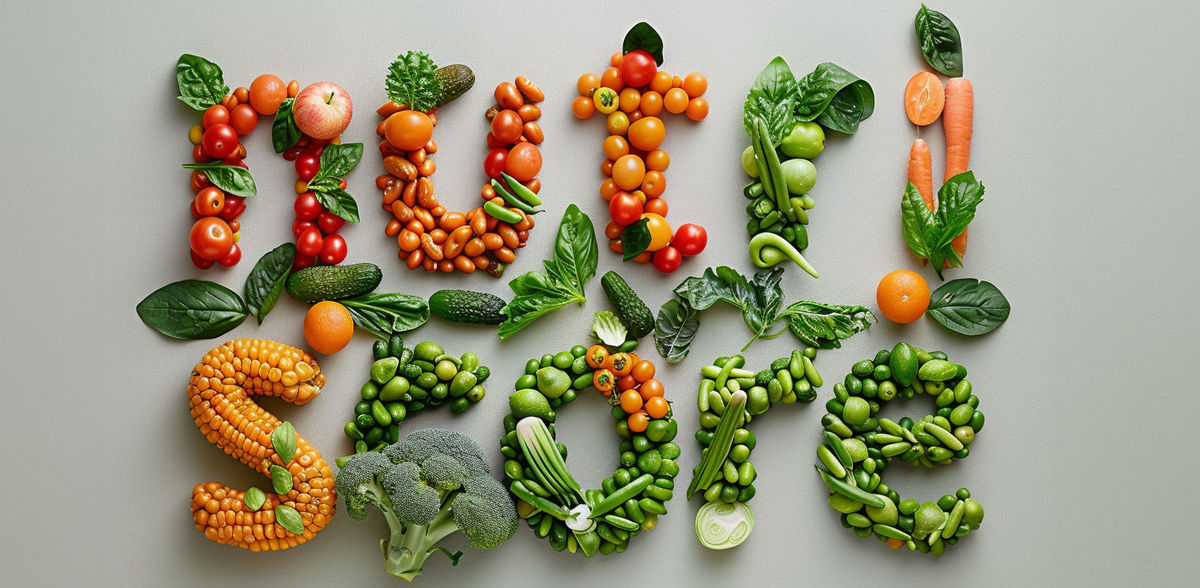Nature Food publication on the revision of the Nutri-Score algorithm
Advertisement
The recently published paper by Merz et al. (https://www.nature.com/articles/s43016-024-00920-3) summarizes the work of the international Scientific Committee of the Nutri-Score. As of the beginning of 2024, updates to the Nutri-Score algorithm have been implemented. These changes are the result of an extensive revision performed by the scientific committee since the beginning of 2021 on the algorithm of this front-of-pack label.
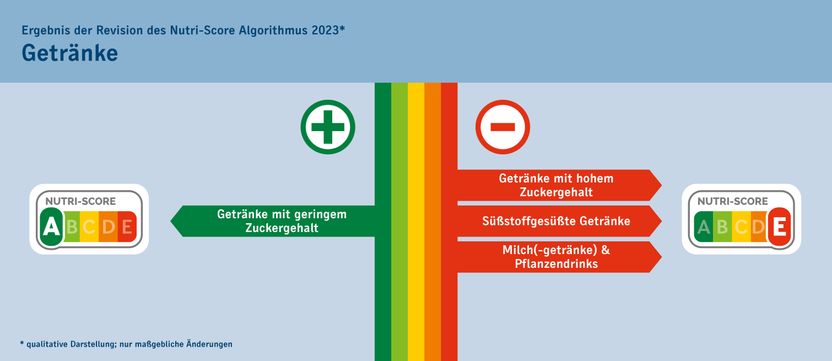
Max Rubner-Institut
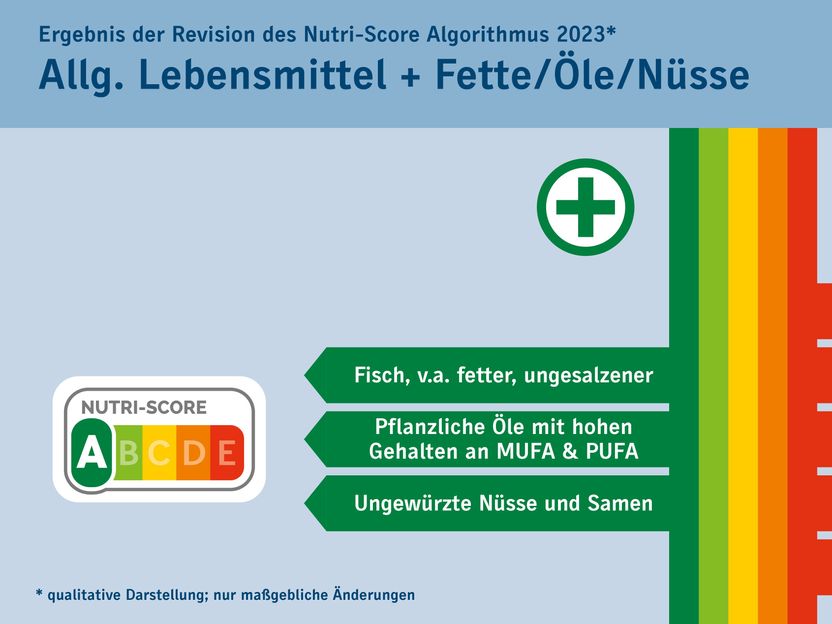
Ergebnis der Revision des Nutri-Score Algorithmus
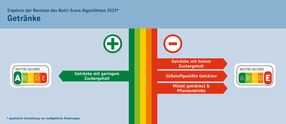
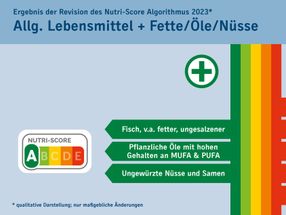
Stricter ratings for sugar and salt contents now result in less favorable ratings for foods with comparably high sugar and salt content, aligning with general nutrition recommendations. For Germany, Prof. Anette Buyken from Paderborn University and Dr. Benedikt Merz from the Department of Physiology and Biochemistry of Nutrition at the Max Rubner-Institut were involved in the revision as part of the scientific committee.Wholegrain products high in dietary fiber can now be better distinguished from variants that are lower in dietary fiber, as the latter will receive less favorable ratings on average. As a result of these changes, breads, along with other foods, will receive significantly different ratings.
Vegetable oils with a high content of nutritionally favorable unsaturated fatty acids will now receive more favorable ratings, increasing the discrimination for this product group. Generally, this also applies to fatty fish and their products. According to current nutrition recommendations, white meat and its products are rated better than red meat alternatives.
In the future, all potable products will be rated using the algorithm for beverages. Milk, milk drinks, and plant-based drinks will now be evaluated using the updated beverage algorithm, rather than the algorithm for general foods. In the future, water will remain the only beverage that can achieve a Nutri-Score A. In the case of milk, the determining factor for the Nutri-Score rating continues to be the specific fat content. Depending on the sugar content, sweetened milk drinks are classified less favorably than their unsweetened alternatives.
Beverages with lower sugar content are rated more favorably, leading to better discrimination of beverages based on their sugar content. Furthermore, beverages containing artificial sweeteners will receive additional unfavorable points to discourage the use of sweeteners as an added incentive.
In summary, the 2023 algorithm will produce Nutri-Score ratings that align even better with the national nutrition recommendations of countries officially engaged in the Nutri-Score.
